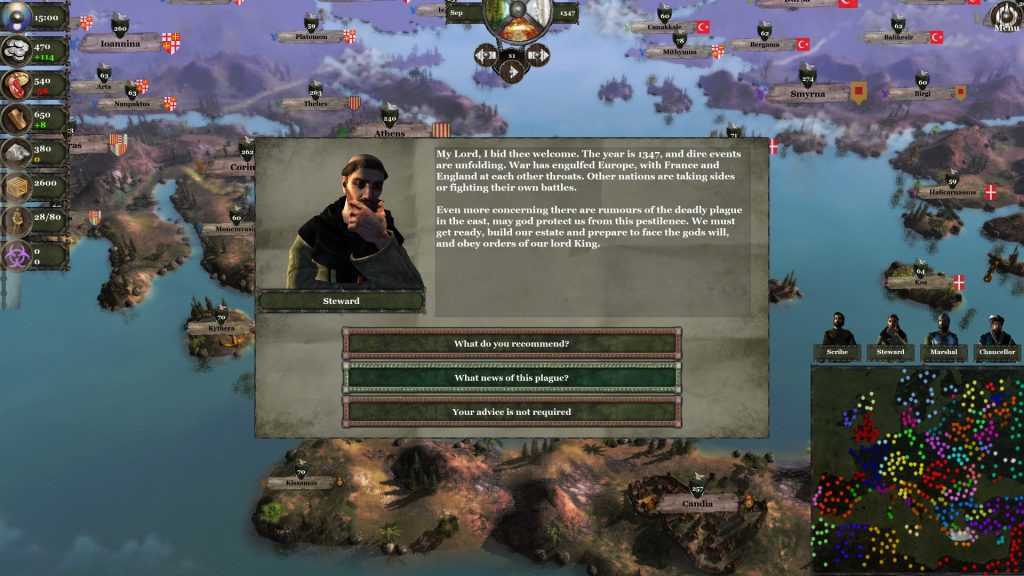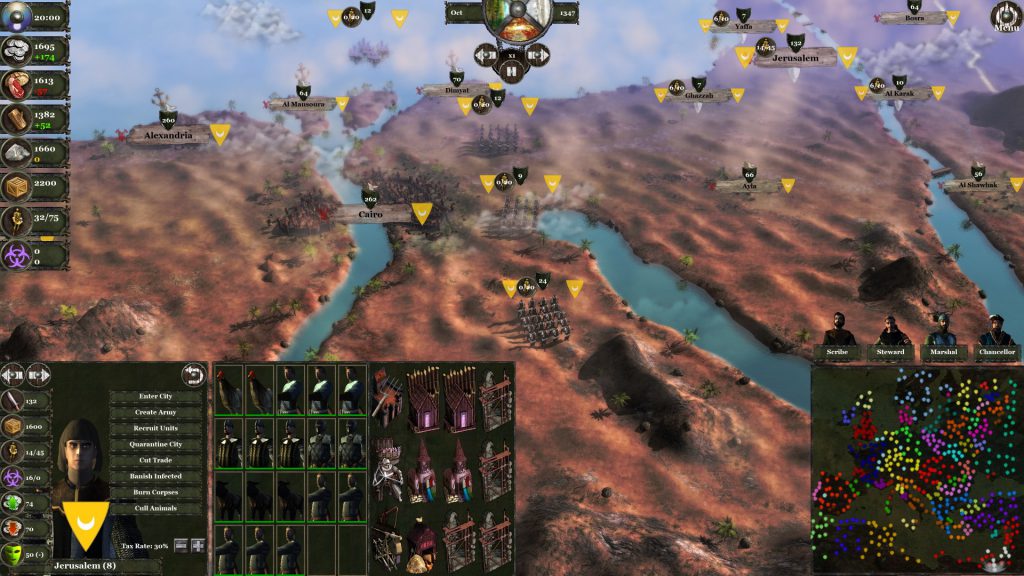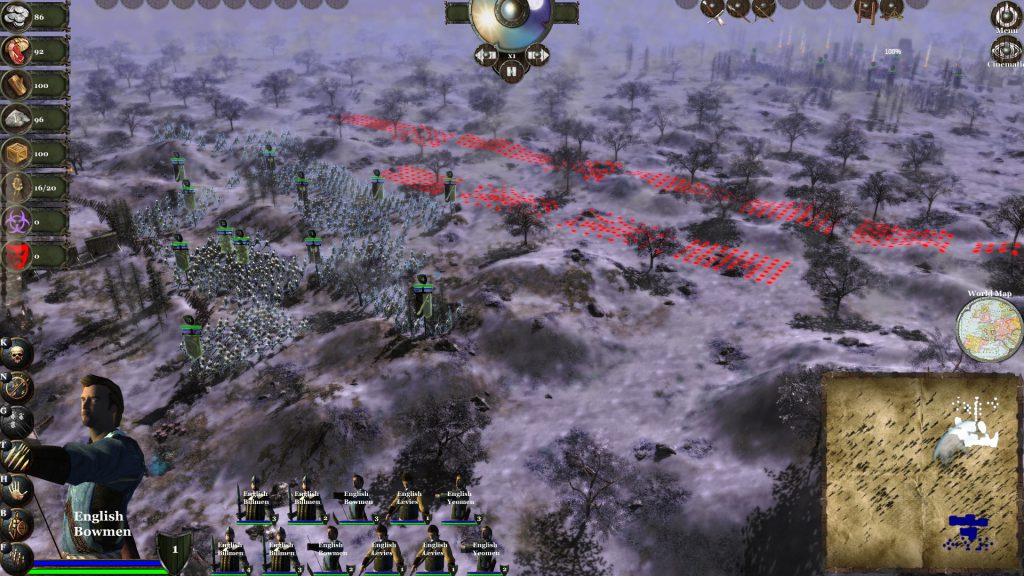The Plague: Kingdom Wars Brings Us Strategic Disease Management
It is 1347. The Hundred Years’ War is still raging, and a new threat looms at the horizon: the bubonic plague. What an excellent time to expand your holdings — provided you are playing The Plague: Kingdom Wars developed and published by Reverie World Studios, which is currently in Steam Early Access.
The Plague: Kingdom Wars is the fourth entry in the Kingdoms Wars series and feels very much like a standalone expansion pack to its predecessor, Medieval Kingdom Wars. In fact, whoever owns that game received The Plague for free, and possibly also got it for free for having bought Kingdom Wars 2.

That said, The Plague: Kingdom Wars expands the scope of the game and offers 200 instead of 50 medieval lords to play as, and features a number of new mechanics. The basic concept — managing a medieval fiefdom in real time via a strategic map as well as tactical battles — is the same.
Whichever lord you pick functions as a de facto difficulty selector, and determines how swiftly your holdings will expand or collapse. Begin your game in Ireland for a mellow start, or start in France for instant action and the potential to dominate Europe in just a couple of decades. Fundamentally, though, all factions feel the same, even with four available cultures; no tech or relevant unit type is truly barred to anyone.
Here is where the first problems show: for a human player, rising to the top is fairly straightforward, especially when burning and pillaging enemy towns and villages. Designed to give you a choice between resources now and resources later, pillaging is almost always the better option. It denies resources to your enemies, and allows your own kingdom to grow rapidly. After a while, this is likely to cause a snowball effect that ends up with the human player being more powerful than any individual AI faction.

Similar games such as the Europa Universalis or Total War games solve this by destabilising large player empires or having all AIs gang up on the human. Whether these are elegant solutions is debatable, but they do mitigate the issue of human players picking off AIs one by one with an army of unstoppable knights to a certain degree. On top of that, only a number of the available technologies are really important, limiting the strategic choices.
The titular plague may interfere with your expansionist plans a bit, but ultimately ends up being little more than a speed bump, and one that affects enemy kingdoms too. The developers announced that plague zombies would be added to The Plague: Kingdom Wars at one point, but those haven’t been implemented as of the writing of this review.

In addition to its lack of variety, The Plague: Kingdom Wars suffers from a number of technical issues. The user interface feels more cluttered than that of some of the earlier Kingdom Wars games. Tactical battles are at times claustrophobic and frustrating to manage due to cramped battlefields and subpar pathfinding. The game’s overall performance ranges from acceptable to almost unplayable, especially late during a campaign.
The Plague: Kingdom Wars does offer multiplayer support, but is limited to tactical battles at this point — playing the grand campaign with several people is not supported. Whether or not the game is worth playing depends very much on future technical improvements and support for playstyles other than rapid expansionism. Until then, The Plague: Kingdom Wars can only be recommended to fans of the series and grand strategy diehards.
Comments are closed.